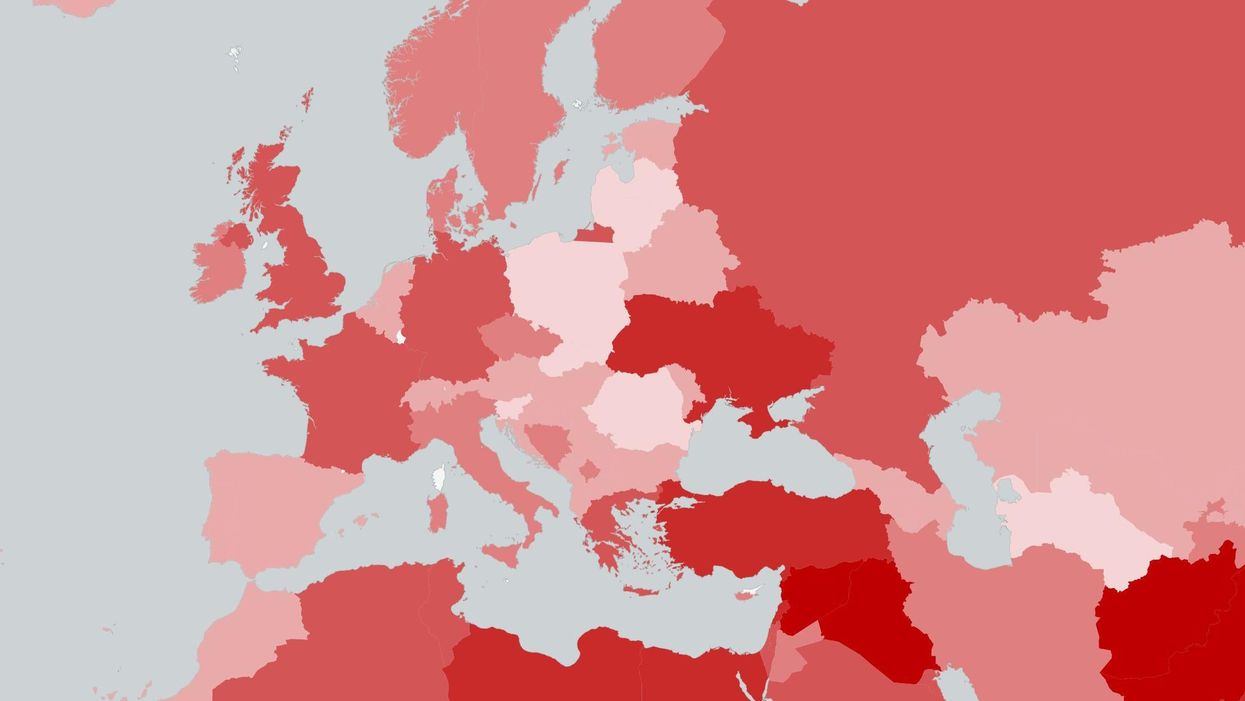News
Louis Dor
Nov 16, 2016

Picture:
Carto/indy100
The world's most developed countries saw a huge increase in deaths from terrorism in the last year, although the number of terrorism deaths fell, globally.
This is according to the 2016 edition of the Global Terrorism Index by the Institute for Economics and Peace.
Isis is now the most deadly terrorist group in the world, overtaking Boko Haram, claiming responsibility for 6,141 deaths in more than 28 countries in 2015 (up from 13 in 2014).
The number of terrorism-related deaths dropped ten per cent in 2015, meaning 3,389 fewer people were killed.
Iraq topped the index with a score of 9.96 out of 10, followed by Afghanistan (9.444), Nigeria (9.314), Pakistan (8.613) and Syria (8.587).
The index is calculated using the Global Terrorism Database, scoring each country for the impact of terrorism incidents in each country for the year.
View the interactive map below:
The United Kingdom ranked 34th on the index, with a score of 5.08.
The report read:
In Europe, ISIL’s transnational tactics in combination with lone actor attacks inspired by the group drove an increase in terrorism to its highest levels ever. This increase was seen in many OECD countries resulting in a 650 per cent increase in deaths to 577 from 77 in 2014. ISIL’s role in this increase was significant as more than half of the 577 deaths were in connection to the group. The attacks by ISIL in Paris, Brussels and in Turkey’s capital Ankara, were amongst the most devastating in the history of these countries and reflect a disturbing return of the transnational group-based terrorism more associated with al-Qa’ida before and immediately after September 11.
For an incident to qualify as terrorism on the Global Terrorism Database, it must meet three criteria:
1. The incident must be intentional – the result of a conscious calculation on the part of a perpetrator.
2. The incident must entail some level of violence or threat of violence — including property damage, as well as violence against people.
3. The perpetrators of the incidents must be sub-national actors. This database does not include acts of state terrorism.
More: What the Pope said when he was asked what causes terrorism
Top 100
The Conversation (0)













